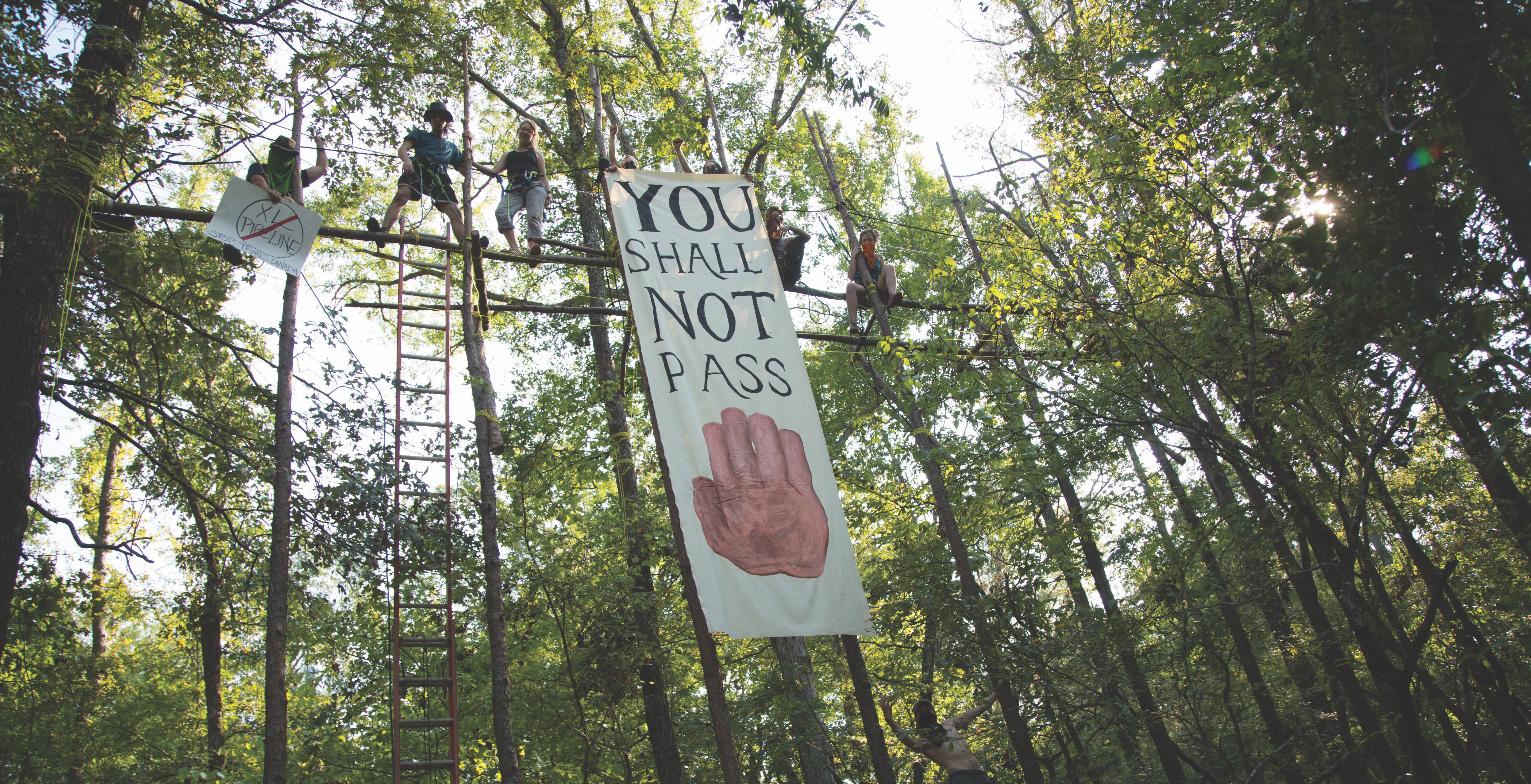
What would you do if a giant energy corporation decided to build a controversial oil pipeline right across your land? For David Daniel, a Texas landowner and environmentalist whose property was chosen as a construction site for TransCanada’s country-spanning Keystone XL pipeline, there was no question about the right course of action. He had to stand up and fight.
Keystone XL is a multiphase oil pipeline system that carries oil from Alberta, Canada to various points around the United States. While climate activists successfully lobbied to prevent Phase 4 of the project (a pipeline carrying oil to Montana, South Dakota and Nebraska) from happening, Phase 1 and 2 have already been carried out, and Phase 3 is nearing completion.
In order to finish this phase of the pipeline, Daniel and his neighbours had their property seized under eminent domain by the government. The grounds for this move were that the pipeline was deemed to be a positive service to the public. President Obama’s executive order to push ahead with completing Phase 3 meant that an ordinary American citizen like Daniel lacked the financial and legal clout to prove that, in fact, the opposite might be true.
So what could be done? To most people, a comparatively powerless citizen taking on a billion-dollar corporate entity with government backing seems out of the question. But despite the daunting opposition in front of him, Daniel wasn’t about to lie down and let his land be seized for a potentially destructive project.
Trees on Daniel’s land would need to be cut down in order to continue with the construction of Keystone XL. And that’s what inspired the activist’s next move. Gathering a group of fellow landowners and pipeline protestors, he formed a group called the Tar Sands Blockade and took to the trees, building an impressive treehouse settlement high up in the branches. The message was clear: continue building the pipeline, and it’s not just the environment you’ll be damaging, but human lives.
After hearing about the plans of Daniel and the Tar Sands Blockade, filmmaker John Fiege was inspired to document the fight of these impassioned, self-sacrificing environmentalists. His film, ‘Above All Else’, provides a personal insight into the effects of action taken by wealthy fossil fuel corporations on the lives of citizens: in this case, a dedicated father committed to protecting the local environment for his family and future generations.
As well as conveying a strong political message about the rights of ordinary people to defend what they believe in, ‘Above All Else’ is shot beautifully, capturing the dense woodland of East Texas with stunning cinematography that constantly reminds you why our environment is a cause worth fighting. In an interview with indienyc.com, Fiege commented on the devastating effects that the pipeline could have on natural terrain like this.
Asked about the tar sands crude associated with Keystone XL, the filmmaker said: ‘Tars sands is a thick, viscous substance that is considered one of the dirtiest unconventional sources of oil on Earth.’
‘To get to it, first they clear cut the Boreal Forest until it is absolutely decimated. Then it is mined. You do not just stick a pipe in the ground like traditional oil where it pops up. It is much harder process, which is the reason it has not been developed until now.’
‘The State Department, which has been heavily criticised for being pro oil, just released a report saying the development of tar sands produces 17% more greenhouse gasses than conventional oil. Even folks who are objective or have an industry slant recognise this oil is more polluting in terms of its carbon footprint and its affect on greenhouse gas emissions.’
Fiege also stressed the beauty of the forest that he filmed in, describing the atmosphere in the tree top blockade as ‘magical’.
‘I spent a lot of time in that forest, all day and everyday,’ the director explained. ‘I have always liked hiking and camping, but there is something very immersive about this. It became a home.’
‘The people who decided to blockade the pipeline were so attached to this land, place, streams, trees, bugs and birds. As a filmmaker I felt that, so with the film I am trying to show this small section of forest becoming a more significant metaphor for the global fight against climate change.’
To best understand the personal fight of David Daniel, the inspiring community of the Tar Sands Blockade and the humbling depiction of nature captured by John Fiege watch Above All Else[geoip-content not_country=”CA”], now streaming via the Love Nature app. [/geoip-content] [geoip-content not_country=”CA”]
ON THE APP
Above All Else
 An entire family’s future hangs in the balance as the Keystone XL oil pipeline threatens to cross through their land. What begins as one man’s stand against greed, corporate bullying and property rights abuse, soon becomes a rallying cry for environmentalists and climate protesters nationwide.
An entire family’s future hangs in the balance as the Keystone XL oil pipeline threatens to cross through their land. What begins as one man’s stand against greed, corporate bullying and property rights abuse, soon becomes a rallying cry for environmentalists and climate protesters nationwide.
Want to watch Above All Else right now? Simply subscribe to the Love Nature streaming app and start your 30-day free trial of the best on-demand natural history documentaries out there. [/geoip-content]
